Ukadiche Modak – Lord Ganesha’s Favorite Sweet Dumpling
Do you like experimenting with Indian sweets? Ukadiche Modak is something divine. These are tender, steamed dumplings stuffed with full, fragrant fillings and are particularly prepared during the Hindu festival of Ganesh Chaturthi, a festival to honor the Lord Ganesha, the remover of obstacles.
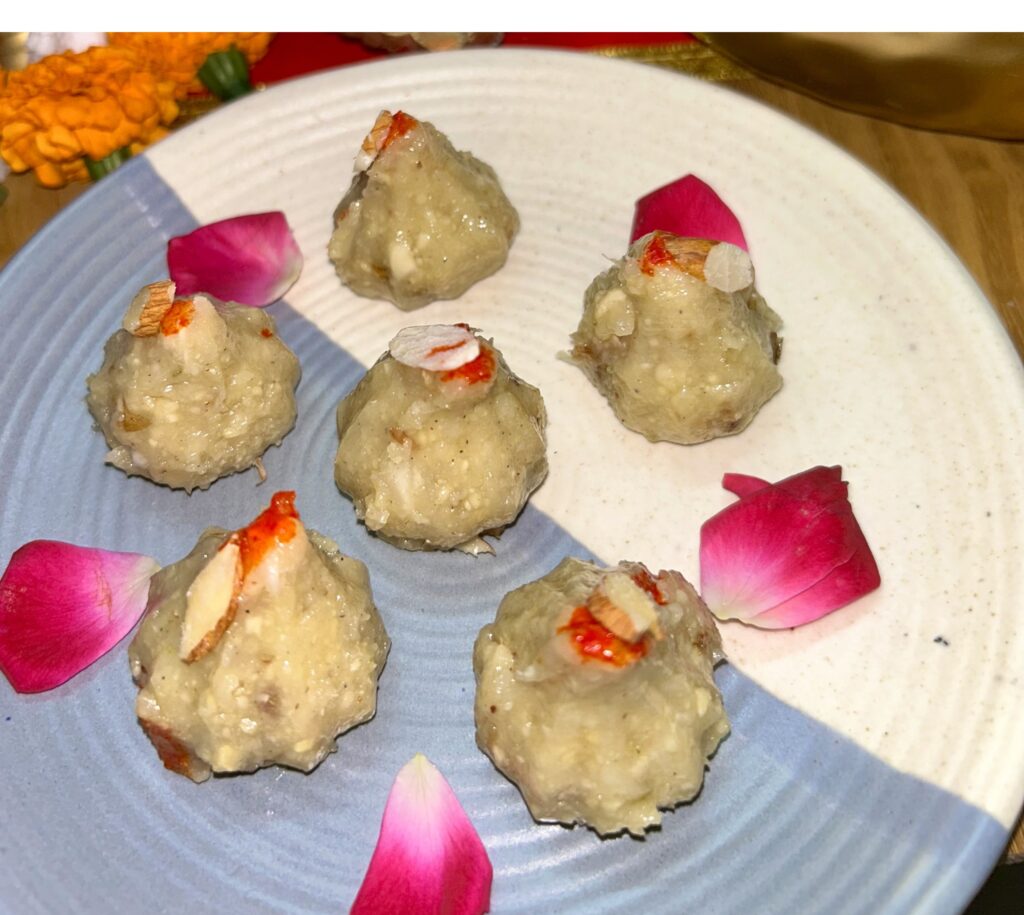
In India, Ukadiche Modak is considered to be the ultimate treat of the festivals because it is known that Lord Ganesha loves this sweet the most. It is a kind of Indian sweetened dumpling, soft on the outside, nutty, fragrant, and best of all just melts in the mouth.
Today, I will bring to you a special twist on the classic recipe with a filling that involves cashews, almonds, dried coconut, clarified butter, powdered sugar, and rose petal preserve jam. This mixture leaves the Modak with a creamy, nutty, and flowery sweetness, which is literally a bite of heaven.
Table of Contents
What is Ukadiche Modak?
Ukad is a short name meaning steamed rice flour dough, and this becomes the soft outer shell of the modak, whereas Modak is simply a dumpling-shaped sweet. Ukadiche Modak literally means a steamed sweet dumpling, normally stuffed with coconut and jaggery and folded into neat pleats or using a mould.
In this recipe, we are putting our special touch on the traditional modak by stuffing it with a luscious snack of cashews, almonds, dried coconut, powdered sugar, clarified butter, and a rose petal preserve. This special blend of ingredients not only complements the flavor but also gives the evergreen and traditional flavors to this flavorful sweet Ukadiche Modak.
What Makes Ukadiche Modak So Special?
Ukadiche Modak isn’t just another sweet—it’s almost sacred. The shell is made of soft rice flour dough, and the filling traditionally has coconut and jaggery. But here’s the fun part: the shape.
It’s pleated and pinched at the top, looking almost too pretty to eat. Some people even say making perfect pleats is like a hidden family competition—everyone secretly wants to win “Best Modak Maker” at home!
Our Modern Twist on Tradition
Now I know this is a beautiful tradition, but your taste buds sometimes just want to get crazy. This time, instead of the more common coconut and jaggery mix, we use a cashew, almond, dried coconut, powdered sugar, ghee, and rose petal preserve filling. Like Modak on a spa break, it emerges even richer, creamier, and fragrant with rose. It is simply the good old Modak, but dressed up specially Ukadiche Modak
Shaping Modaks: Easier Said Than Done
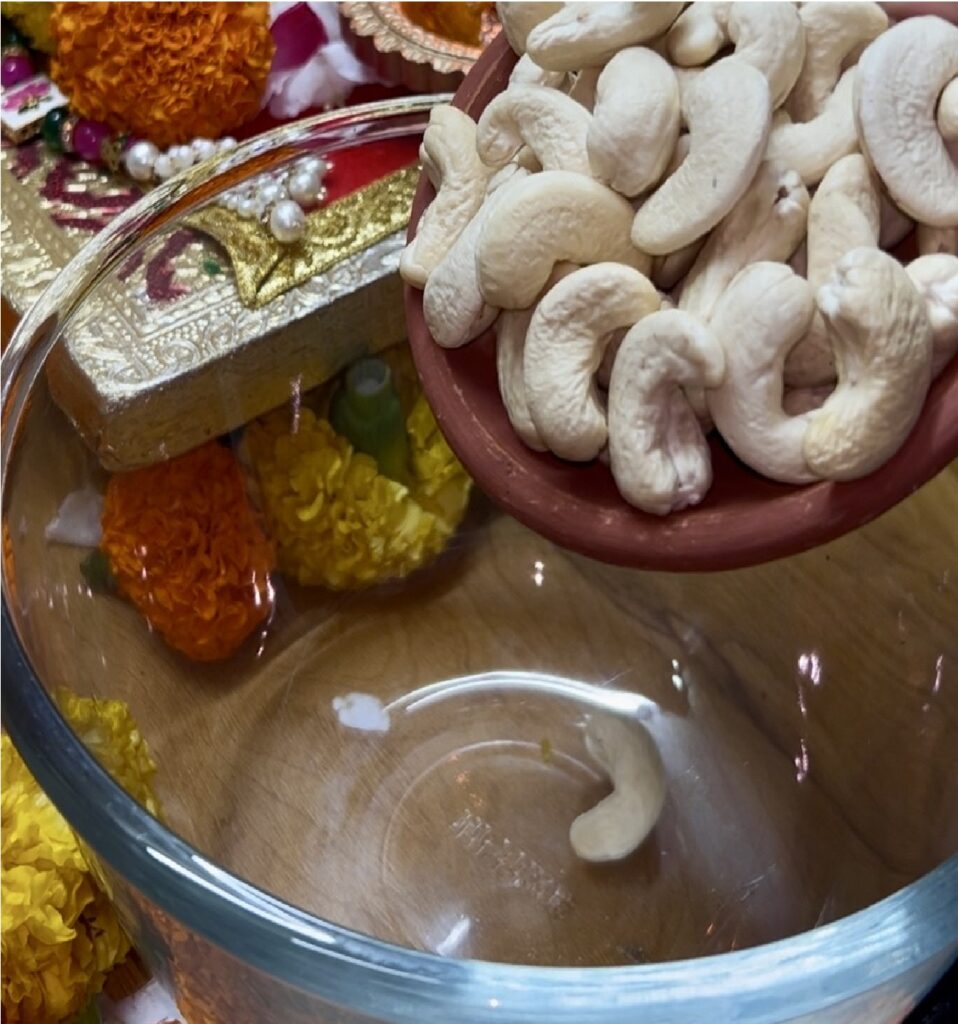
Let’s be honest: hand-pleating Modaks is an art. If you’ve tried it, you know it can sometimes look like a dumpling that has lost its way. That’s why we thank the universe for Modak molds. Just pop in the dough, fill, seal, and boom—you’ve got perfect little Modaks that look like they came straight out of grandma’s kitchen (minus the stress and uneven pleats) Ukadiche Modak.
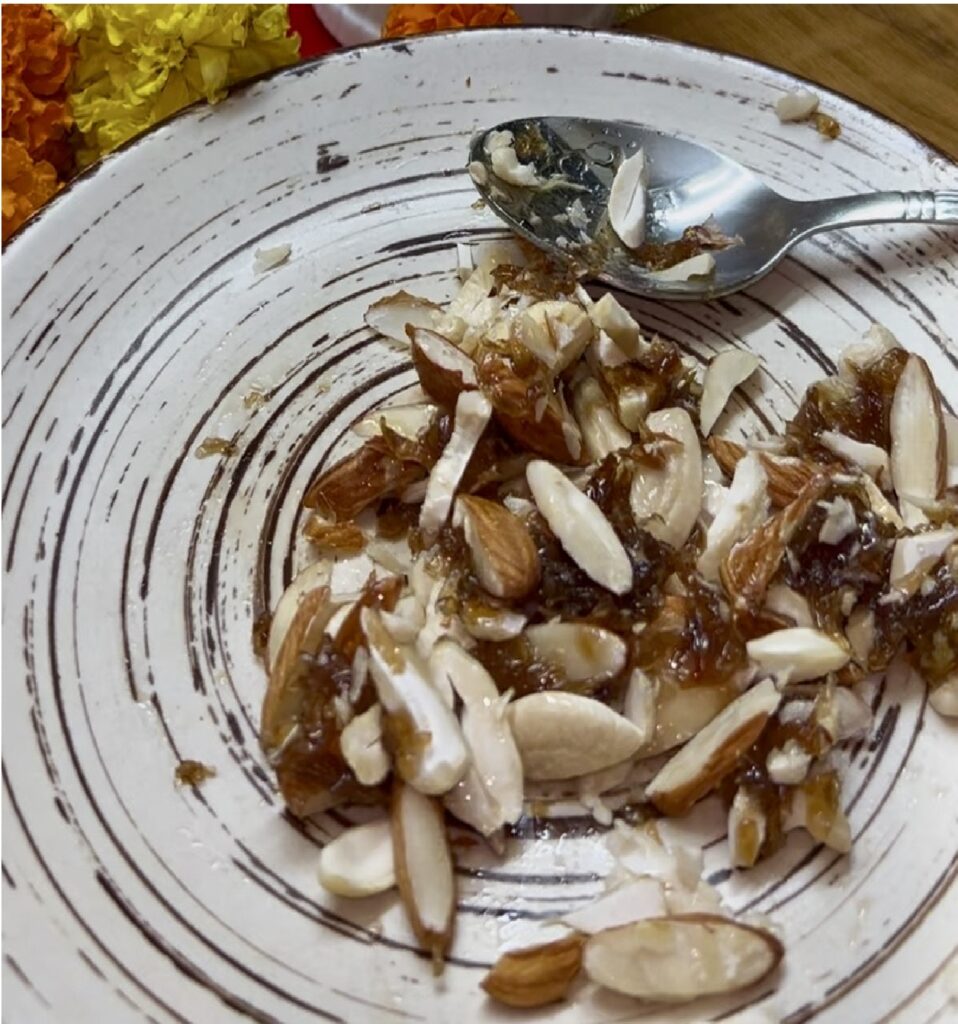
Mini Modak Bappa – Because Cute Always Wins
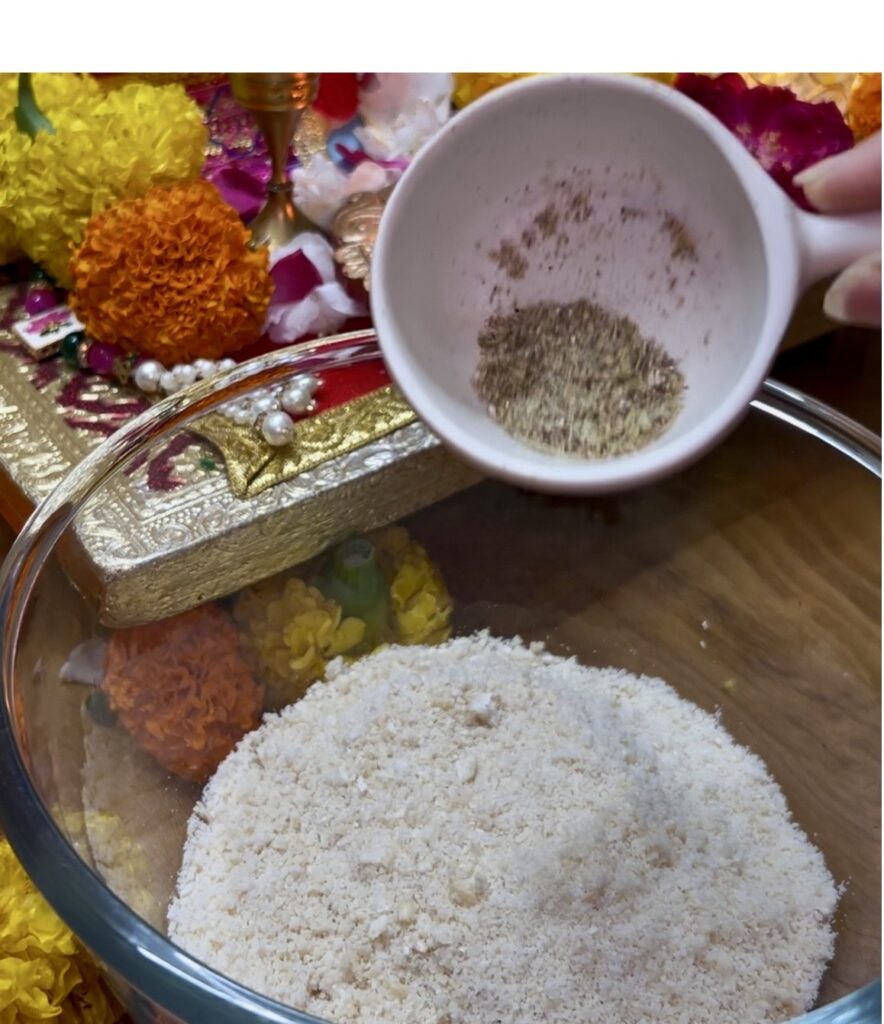
Here’s another fun idea: make them mini! Tiny Modaks are not only adorable but also guilt-free… or at least that’s what I tell myself when I eat six in a row. Trust me, when you present a plate of mini Modaks, your guests will say, “Aww, how cute!” before saying, “Wow, pass me another.”
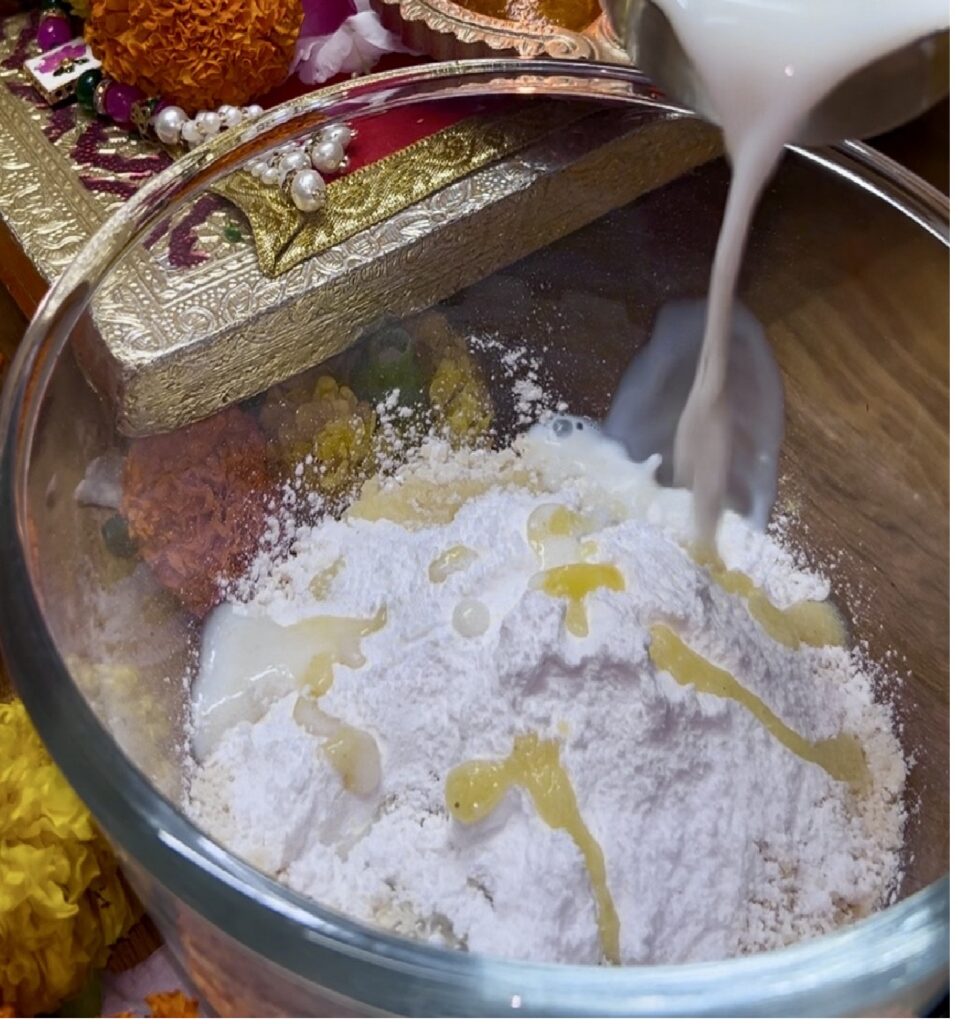
Festival Vibes in Every Bite
Eating Ukadiche Modak is not only food; it is an experience. The outer shell is soft and melts instantly in your mouth, and the inner filling is thick, nutty, and with flavors. It is very indulgent and festive, and cozy. It’s like Christmas cookies, but with an Indian soul.
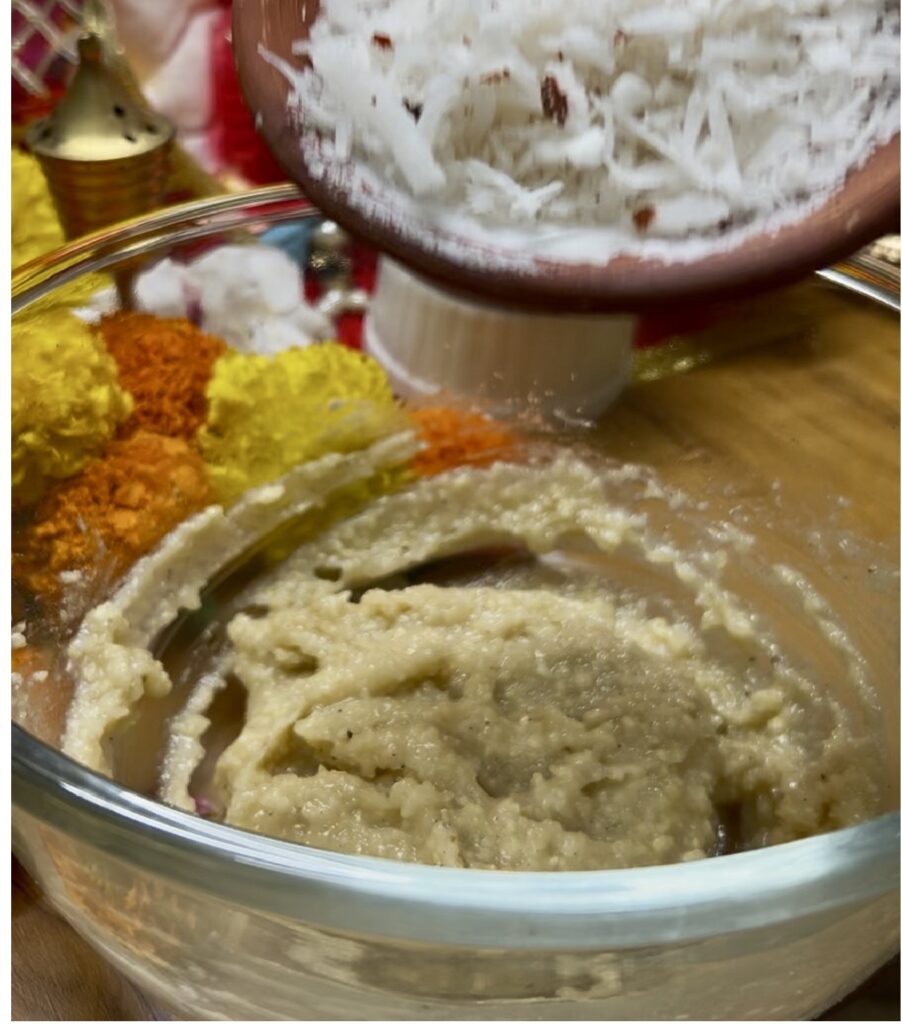
Modak and Ganesh – A Sweet Friendship
In India, Ukadiche Modak is not only a sweet, but it is the favorite sweet of Lord Ganesha. It can be viewed as a sacred offering that is also used as the most delicious part of the feast. In fact, families prepare Modaks with so much love that it almost feels like Ganesha himself might sneak into the kitchen for a bite. And frankly, who can blame him?)
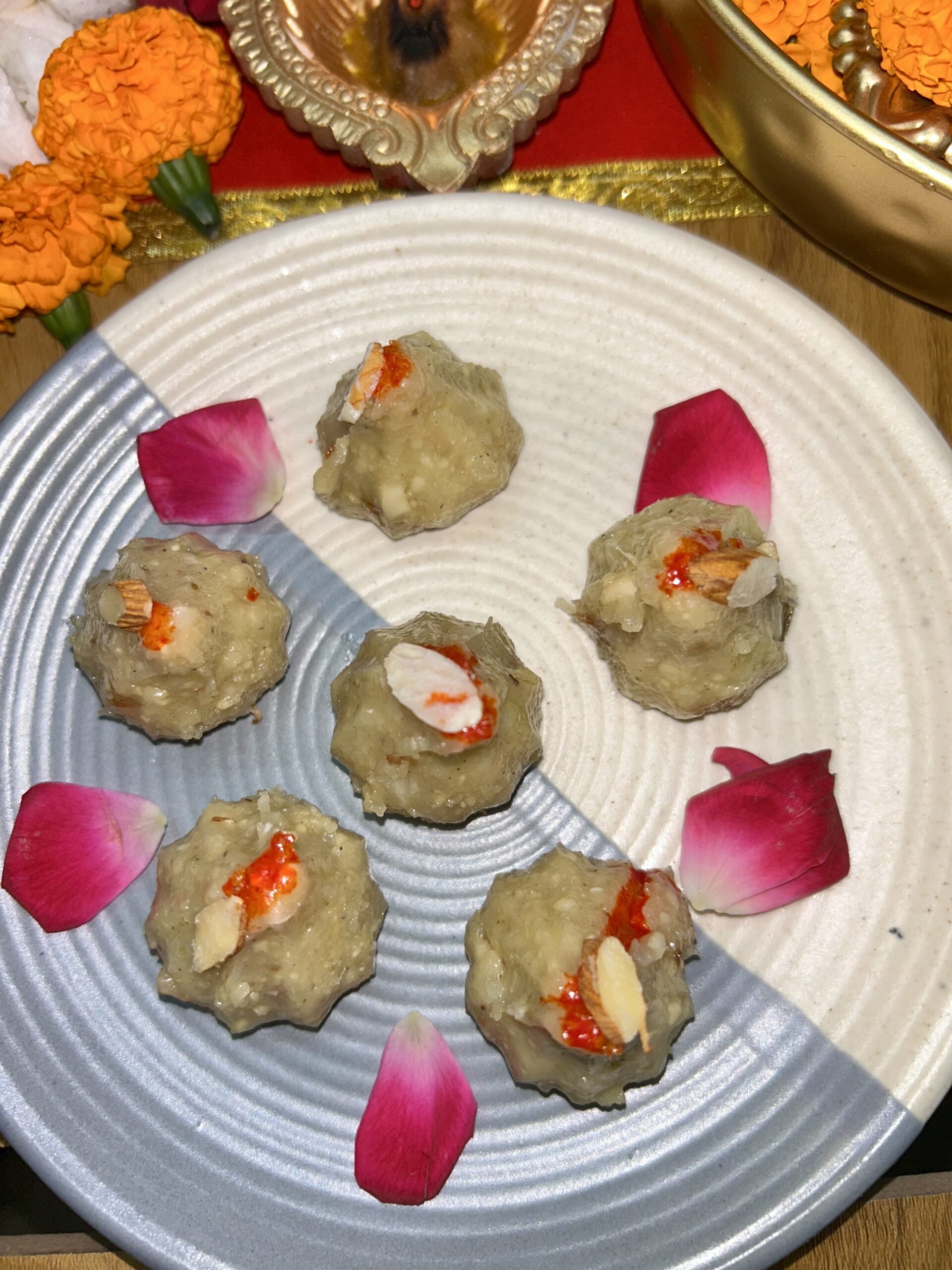
Ukadiche Modak
Ingredients
Method
- In a bowl, mix rice flour, cashew nut powder, sugar, dried coconut, and cardamom powder. Heat milk with ghee and gradually add it into the mixture, kneading gently until a soft, pliable dough forms. Keep it covered with a damp cloth to prevent drying out.
- In another pan, heat ghee and lightly roast the chopped cashews and almonds. Mix in powdered sugar and sweet rose jam until everything blends into a fragrant, nutty mixture. Set aside to cool.
- Take a small portion of dough, flatten it, and place a spoonful of filling in the center. Gently shape it into a dumpling using your hands or a modak mould. Seal tightly at the top to create the classic pointed shape.
- Place the modaks in a steamer lined with banana leaves or parchment paper. Steam for 10–12 minutes until they turn slightly glossy.
- Enjoy warm Ukadiche Modaks as a divine festive treat—or surprise your American friends with “Indian-style sweet dumplings” that taste like a celebration in every bite.
- Nut-Free Version: Skip cashews and almonds, use only coconut and rose preserve for a lighter filling.
- Jaggery Sweetness: Replace powdered sugar with jaggery powder for a more traditional flavor.
- Chocolate Lovers: Add 1 tablespoon of cocoa powder or melted chocolate to the filling for a fusion twist.
- Dairy-Free: Use coconut oil instead of ghee and plant-based milk for a vegan-friendly modak.
- Kids’ Favorite: Add colorful sprinkles or drizzle melted white chocolate over steamed modaks before serving.
- Warm with a drizzle of clarified butter on top.
- As a festive dessert during Ganesh Chaturthi.
- For dinner parties, serve as a unique Indian sweet dumpling — your American friends will be amazed by the flavors.
Notes
FAQs
Q1. What does Ukadiche Modak taste like?It tastes like a soft rice dumpling with a nutty, coconut, and floral sweet filling — rich, aromatic, and melt-in-your-mouth. Q2. Where can I find rose petal jam in the U.S.?
Gulkand is usually available at Indian grocery stores or online (Amazon, Patel Brothers, etc.). Q3. Can I make Modak without a mold?
Yes. Traditionally, Modaks are hand-shaped with pleats. But moulds make it easier, especially if you’re trying them for the first time. Q4. Is this gluten-free?
Yes, since rice flour is used for the shell, Ukadiche Modak is naturally gluten-free.
Nutrition (Per 1 Mini Modak, approx.)
- Calories: ~110 kcal
- Carbohydrates: 15 g
- Protein: 2 g
- Fat: 5 g
- Fiber: 2 g
- Sugar: 7 g


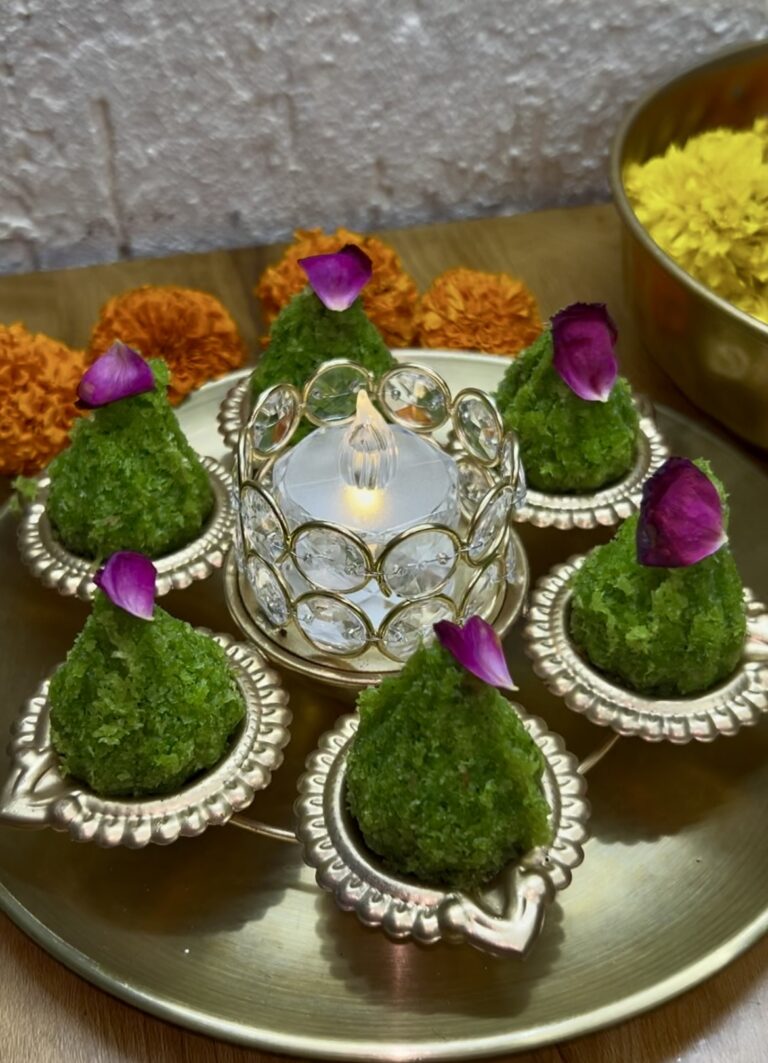
One Comment